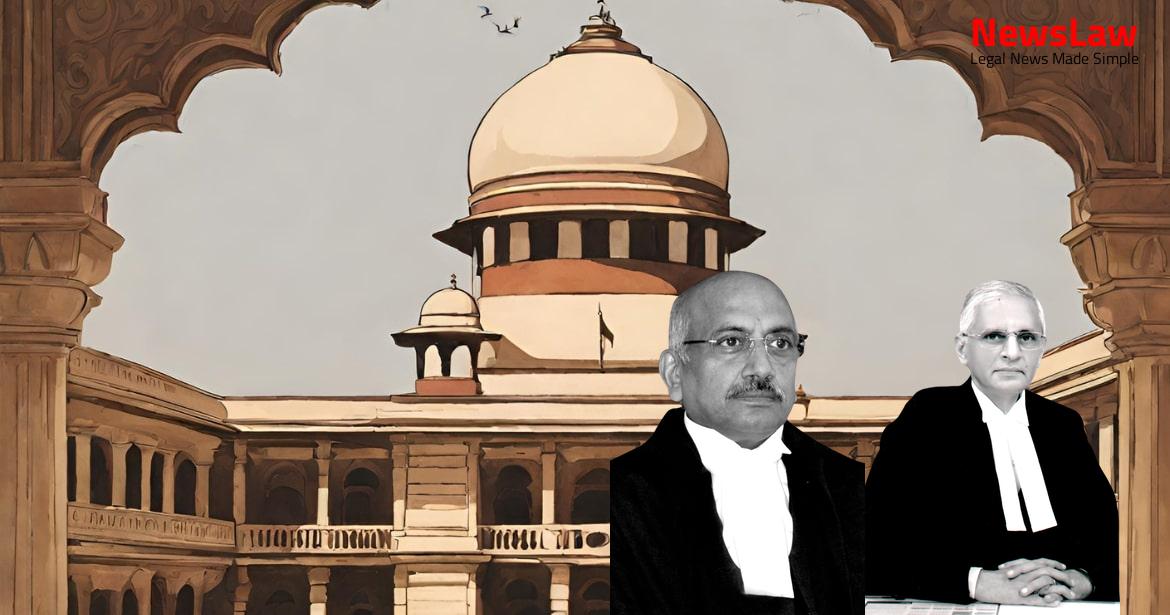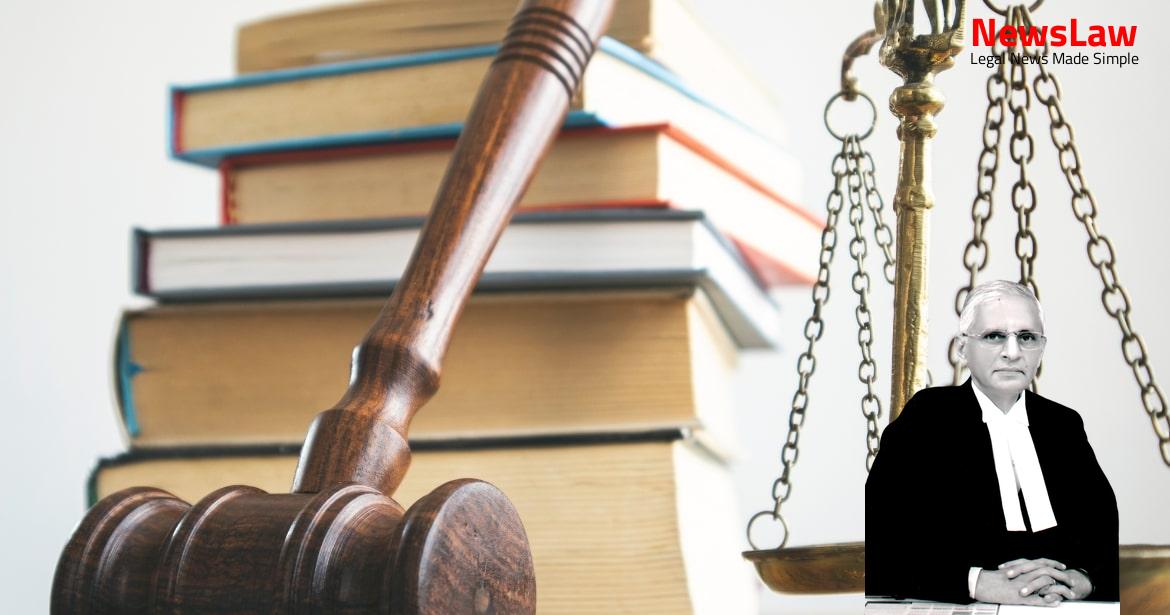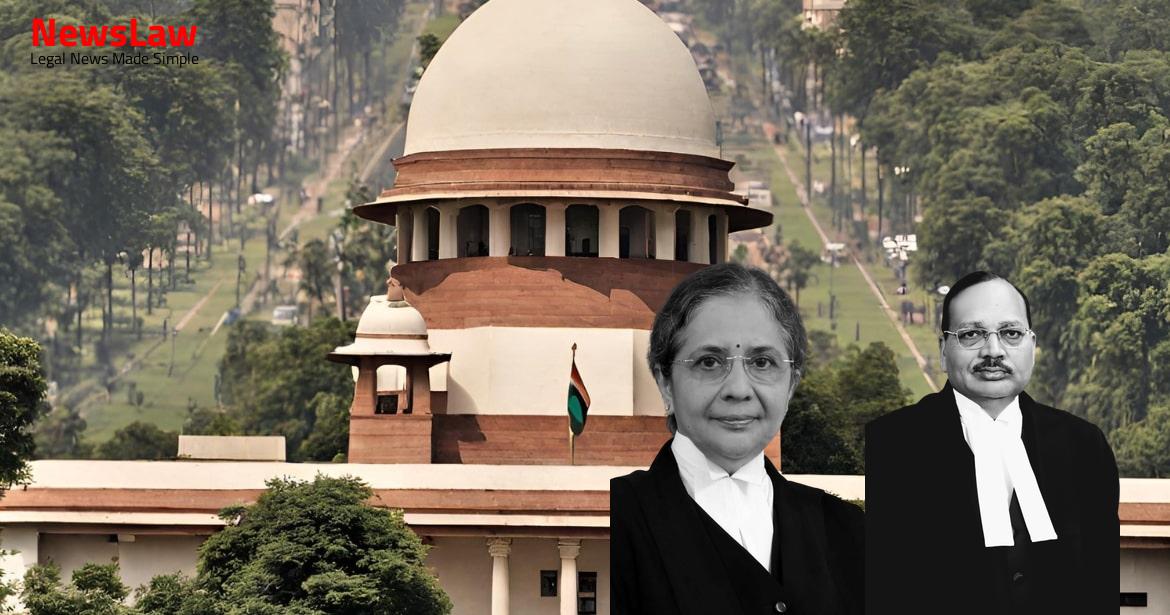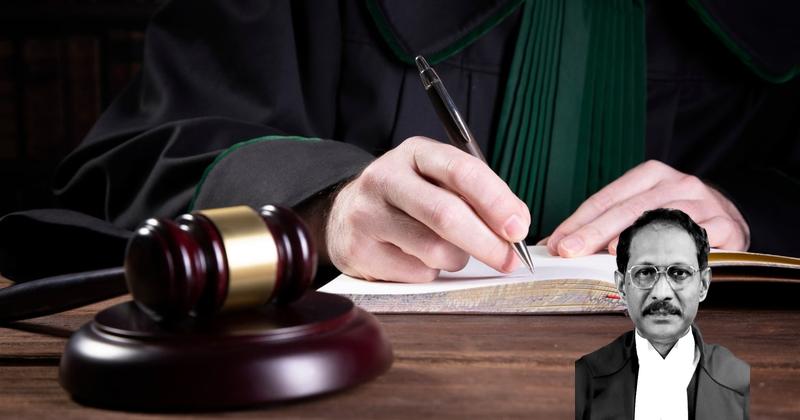The High Court’s thorough examination of the definition of ‘business’ in a land lease case underscores the importance of precise legal interpretation in eviction matters. By delving into various judgments and legal frameworks, the Court’s analysis sets a precedent for future cases involving leased land and commercial activities. Let’s explore how the Court’s insights contribute to the nuanced understanding of ‘business’ in the context of property usage.
Facts
- The High Court of Punjab & Haryana held that the rented land was being used for business purposes.
- A Revision Petition was filed by the Municipal Committee against the order passed by the Appellate Authority.
- The High Court set aside the orders passed by the Rent Controller and the Appellate Authority.
- The property was originally owned by Telu Ram and later Bhagwan Dass executed a gift deed in favor of Louis Club.
- Mutation was sanctioned and possession was delivered to Louis Club.
- Ladies Tandon Club has been occupying a portion of the property as a licensee since 1936.
- The Municipal Committee changed the use of the property by sinking a tubewell for the residents of the town.
- Bhagwan Dass held occupancy rights in terms of the Punjab Tenancy Act, 1887.
- A pavilion was constructed on the property for the purpose of the club only.
- A petition for ejectment was filed by the appellants citing reasons such as non-payment of rent, subletting without consent, and unauthorized use of the premises.
- The High Court referred to a previous judgment to establish that activities of indoor and outdoor games in a club do not constitute premises being let out for educational purposes.
- The Full Bench of the High Court, in a decisive ruling, stated specific points regarding this issue.
Also Read: Interpretation of Will and Hindu Succession Act: Legal Analysis
Analysis
- The activity of running and maintaining a school by a tenant society was considered as a business by the High Court.
- The definition of business in Section 2(d) of the Act was interpreted broadly to include such activities.
- The High Court relied on several judgments from different High Courts and the Supreme Court to support its conclusion.
- In a case where the tenant claimed the building was being used for a school, the court considered whether the premises were solely used for business or trade to determine if it fell under the definition of a residential building.
- The judgment in Narain Swadeshi Mills was used to assess the existence of business under the Excess Profits Tax Act, 1940.
- Court also referred to judgments like Senairam Doongarmall v. Commissioner of Income Tax to determine business income under the Income-Tax Act, 1922.
- A case involving a club’s activities was highlighted as not falling under the definition of business.
- Different interpretations of ‘rented land’ and ‘business’ were discussed in various judgments cited by the High Court.
- The High Court distinguished the Model Town Welfare Council case in relation to the definition of ‘business’ for the purposes of eviction.
- A case involving a tenant using premises for a rice and flour mill was cited as an example where the activities were considered business.
- The Full Bench of the High Court incorrectly held that the land leased to the club for constructing a pavilion was not for business purposes.
- The definition of rented land in the Punjab Act aligns with the definition in the Act, even though the Punjab Act was repealed when the Punjab Municipal Act, 1911 was enacted.
- The term ‘business’ in Section 2(f) of the Act encompasses not only commercial endeavors but also charitable activities or dealings in the interest of the public or a specific section thereof.
- Therefore, leasing land to a club for constructing and using a pavilion falls under the scope of Section 2(f) of the Act, making an eviction petition maintainable under the said Act.
- The District Boards were established under the Punjab District Boards Act, 1883, and the tenant mortgaged the pavilion constructed in 1911 to the District Board.
- The finding of fact recorded by the Rent Controller and the Appellate Authority has not been disputed.
- Therefore, the order of eviction was rightfully passed against the respondents.
Also Read: Legal Analysis of Pujaris’ Rights in Temple Land Ownership
Decision
- Present appeals allowed
- High Court order set aside
- Respondents given three months to vacate premises and hand over possession to appellants
- Appellants must pay all taxes due on the land before using the premises
Also Read: Land Compensation Redetermination Case
Case Title: RAJINDER KUMAR BANSAL . Vs. MUNICIPAL COMMITTEE (2021 INSC 405)
Case Number: C.A. No.-008238-008238 / 2013



